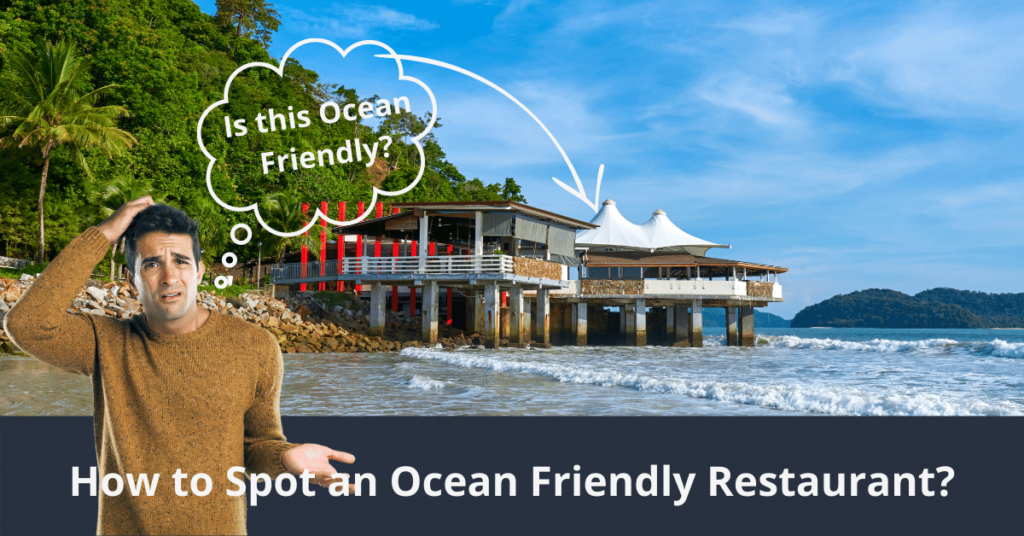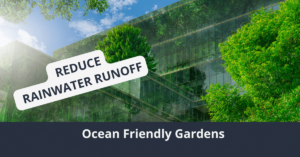The past few decades have spelled tragedy for the world’s oceans. More than 8.75 million metric tons of plastic fragments flow into the sea each year, damaging marine ecosystems at unprecedented rates. With 5.25 trillion parts of plastic already in the world’s waters, what can we do to stop it? Luckily, we can do something about it, and it happens in the kitchen.
According to the Surfrider Foundation, there are 672 Ocean Friendly Restaurants (OFRs) in the USA. The Foundation aims to reduce pollution of the planet’s oceans and coasts. Better beach access, clean water, and more pristine marine ecosystems are valuable to ourselves and future generations.
When you eat at an ocean-friendly restaurant, you are also investing in a more resilient future.
Everything you will learn here
- 10 Ocean Friendly Restaurants Protecting the Planet
- 1. Green Street Market Cafe and Juice Bar – Follows the best recycling practices
- 2. Woodstock’s Pizza – Styrofoam-free
- 3. 7 Devils Brewing Company – Only uses reusable food ware.
- 4. Andytown – No plastic bags for take-out
- 5. Pacific Coast Spirits – Provides utensils and (paper) straws only by request
- 6. Herringbone La Jolla – Free from plastic bottled beverages
- 7. LG Crafted Wines – Discounts for customers who use reusable containers
- 8. BeachFly Brewing Company – Makes an effort to be energy efficient
- 9. Fish-Tale Waterfront Dining – Provides ample vegetarian and vegan options
- 10. Leroy’s Kitchen and Lounge – Certified sustainable seafood
- Honorable Mentions of additional ocean friendly restaurants
- Conclusion of ocean friendly restaurants
10 Ocean Friendly Restaurants Protecting the Planet
What makes a restaurant ocean-friendly? We’ve listed ten restaurants from Surfrider’s database that are shining examples of ocean-friendly restaurants.
The first five restaurants listed below cover the mandatory criteria for earning the title of “OFR,” according to Surfrider.
1. Green Street Market Cafe and Juice Bar – Follows the best recycling practices
Over 49.4 billion plastic water bottles made it into the world in 2015, but only 31.1% made it through a recycling facility. Without proper recycling practices in place, restaurants can quickly waste hundreds or thousands of plastic containers.
Check out Green Street Market Cafe and Juice Bar in New Jersey to see a restaurant committed to Certified Sustainable and vegetarian/vegan-friendly access.
Green Street is an ocean-friendly restaurant that properly disposes of cardboard and provides appropriate recycling containers on-site.
The Green Restaurant Association, a pioneer of the Green Restaurant movement, provides guidance and certification for best recycling and waste management practices nationwide. Each state also has specific regulations for recycling concerning restaurants. Green Street’s practices are in line with the Green Restaurant Association’s recommendations.
2. Woodstock’s Pizza – Styrofoam-free
The world’s deadliest resin expanded polystyrene (EPS), commonly called “styrofoam,” does not biodegrade in our lifetimes. Instead, it breaks down into small particles, which are toxic to our bodies and ecosystems. Styrofoam manufacturing requires fossil fuels, further worsening its environmental impact.
Woodstock’s Pizza in Santa Cruz, California, is an excellent example of a company getting behind the no-foam movement. Woodstock doesn’t use any polystyrene, single-use food ware, or plastic bags, and customers get paper straws by request. Woodstock’s company is planet-friendly, they understand that degradable materials are the way to go.
3. 7 Devils Brewing Company – Only uses reusable food ware.
One cannot call a restaurant ocean-friendly unless they strictly use reusable food ware for onsite dining. Look out for containers, drinkware, dinnerware, silverware, and ramekins or cloth napkins meant for reuse.
Many businesses use reusable food ware for cost savings, but there is enormous value in protecting the environment as well!
Explore 7 Devils Brewing Company for a Platinum-Level casual dining experience. You’ll find only reusable food ware at this brewery. 7 Devils likes to keep the brew and food local and American-made. Their CEO (Annie Pollard) is an active organizer at the local Surfrider chapter. The company’s co-owners also regularly engage with ocean-friendly volunteering and awareness programs.
4. Andytown – No plastic bags for take-out
The United States uses over 100 billion plastic bags annually, most of which may eventually break down as non-biodegradable particles in the ocean. Plastic bags are petroleum-based, meaning it requires a tremendous amount of energy to produce them. Millions of barrels of oil go towards making more plastic materials every year in the USA.
Andytown of San Francisco, California, is a proudly woman-owned business that put the world first by saying no to plastic bags. As part of the Green Business Network, Andytown not only delivers top-shelf roasted coffee right by the beach, but they’re doing their part by using alternatives to plastic bags, such as paper bags and reusable or recyclable tote bags.
None of us will be around in 700-1000 years when all the plastic produced today finally breaks down (and even then, it will not have genuinely “biodegraded”). Cutting out plastic bags is one of the most obvious ways for restaurants to prove their mission to be ocean-friendly.
5. Pacific Coast Spirits – Provides utensils and (paper) straws only by request
Pacific Coast Spirits is an ocean-friendly restaurant that takes the impact of straws seriously.
Plastic straws may be one of the most wasteful staples of the restaurant industry. Pacific Coast Spirits uses alternative materials and reusables, and they offer paper straws upon request. You’ll get a grain-to-glass craft distillery experience at Pacific Coast Spirits, with an ocean-friendly peace of mind.
6. Herringbone La Jolla – Free from plastic bottled beverages
Herringbone La Jolla in California is slightly different from other restaurants mentioned in this list. They’re part of a much larger company (Hakkasan Group) with an impressive philanthropic arm.
The company joins an annual beach cleanup with the Surfrider Foundation. It has also reached Platinum status as an ocean-friendly restaurant. Plastic bottles and caps are among the top ten items found at beach cleanups, so the hundreds of pounds the Hakkasan Group collected over the years make a difference.
Herringbone follows best ocean-friendly practices by using glass bottles and aluminum cans instead of plastic or styrofoam.
7. LG Crafted Wines – Discounts for customers who use reusable containers
LG Crafted Wines knows small discounts and rewards can go a long way when getting customers on board with ocean-friendly practices.
LG Crafted Wines is a Platinum Level restaurant originating from Cape Town, South Africa, and they cover all the bases of ocean-friendly practices. Reducing environmental impact is a pillar of their brand’s distinction.
The fewer bags, containers, and cups we throw away, the fewer particles of trash will end up in the ocean. LG Crafted Wines offers a discount for bringing a mug, food container, or reusable bag, and they also sell reusables onsite.
8. BeachFly Brewing Company – Makes an effort to be energy efficient
BeachFly Brewing Company in Florida has pledged to be energy efficient. Like other establishments on the Ocean-Friendly list, BeachFly underwent a comprehensive energy management survey to ensure they follow best practices. The brewery also serves metal straws instead of plastic, and most customers appreciate the gesture.
Through improved equipment and energy-efficient lighting, BeachFly increased their energy efficiency and lowered their carbon footprint, thus lessening their impact on climate change.
Restaurants consume a substantial level of energy. Producing energy requires water in ways the consumer may never see, such as in coal mining (653 liters per ton), offshore oil drilling, and shale mining (fracking). The less energy we consume, the less we must extract from the earth, including freshwater.
9. Fish-Tale Waterfront Dining – Provides ample vegetarian and vegan options
When a restaurant like Fish-Tale Waterfront Dining provides vegan or vegetarian options, they speak up to climate change, pollution, deforestation, and water conservation. More than one-third of global wild fish captured end up as feed for animals, including farmed fish.
Fish-Tale Waterfront Dining offers vegetarian and vegan food options regularly. The company also knocks out eight of Surfrider’s criteria for an OFR, meaning it’s a company that cares about our oceans.
Fish-Tale also understands the times in which we live. With so many people changing their diets to be more ocean-friendly, having vegan and vegetarian options increases the number of customers a restaurant can serve.
10. Leroy’s Kitchen and Lounge – Certified sustainable seafood
Leroy’s Kitchen and Lounge is aware of sustainable fishing and farming. Seafood Watch of Monterey Bay Aquarium provides thoroughly researched consumer and restaurant guides for choosing the best seafood, and Leroy’s is in-line with those guidelines.
Seafood Watch’s seafood basics guide considers seafood production more sustainable when it:
- avoids overfishing,
- considers the climate,
- improves traceability,
- limits bycatch (unintended animal captures, such as turtles or dolphins),
- limits using wild fish as feed,
- manages pollution and disease,
- preserves habitats,
- prevents farmed fish escapes (which can compete with native species),
- protects human rights,
- stops illegal fishing.
Leroy’s Kitchen and Lounge is a platinum-level OFR with a proud badge of certified sustainable seafood. By partnering with local farmers, brewers, and manufacturers, Leroy’s is a farm-to-table industry leader. The company has energy efficiency efforts in place, and customers earn discounts for using reusable containers.
Honorable Mentions of additional ocean friendly restaurants
From water conservation to pollution mitigation, these other ocean-friendly restaurants deserve a mention.
- TS Restaurants, a restaurant conglomerate spanning Hawaii and California, earned the Platinum Level Ocean Friendly Restaurant and takes steps to become more sustainable.
- Monterey Bay Aquarium is home to plenty of sea life, but it also houses eatery options for visitors that adhere to Seafood Watch guidelines, and you won’t find plastic straws freely handed out here.
(You might also be interested in reading our article on Ocean Friendly Gardens)
Conclusion of ocean friendly restaurants
The end of plastic pollution in our oceans begins with you, from every restaurant big to small, starting in the kitchen. We’ve listed some pioneers of the ocean-friendly movement in this guide, and we’re confident it’ll help you find restaurants that serve with our future in mind.
Without people sharing the benefits of OFRs, ocean-friendly restaurants would have less attention and a lower positive impact than today. So take steps toward preserving our planet and the future by choosing sustainable seafood and other sea-friendly eateries.


